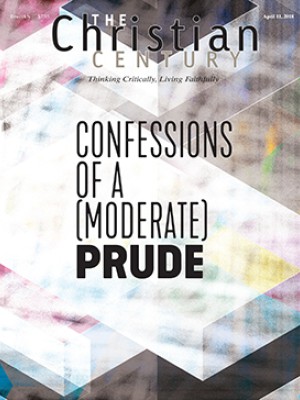Congolese Catholic Church moves from state partner to 'spiritual opposition'
Most of Congo’s antigovernment protests—including several in February that saw at least two people killed—have begun on the steps of a Catholic Church.
(The Christian Science Monitor) At first, they asked nicely.
At the end of 2016, as Congolese president Joseph Kabila’s second full term came to an end, leaders from the country’s powerful Roman Catholic Church nudged the president to sign an agreement with his political opposition. Kabila, they agreed, would call an election to choose his successor in 2017. In exchange, the opposition would let him stay in power until the election.
That never happened.
Over the past year, as Kabila’s rule has dragged on, the Catholic Church’s role in the Democratic Republic of the Congo’s political crisis has morphed from one of quiet moral condemnation to active resistance. Nearly all of Congo’s recent antigovernment protest marches—including several in late February in which at least two people were killed—have begun on the steps of a Catholic church. And the church’s leaders themselves have become among the president’s most outspoken critics.
Read our latest issue or browse back issues.
“We can only denounce, condemn, and stigmatize the behavior of our supposedly courageous men in uniform,” wrote Laurent Monsengwo Pasinya, the archbishop of the capital, Kinshasa, and de facto leader of the Congolese Catholic Church, in a statement earlier this year. “It’s time that truth won out over systematic lies, that mediocre figures stand down, and that peace and justice reign in DR Congo.”
In many countries, this would be a surprisingly bold move for a staid and steady institution like the Catholic Church. For the Congolese, however, it comes as little surprise.
“In Congo, the church is our father and our mother,” said Claude Kabemba, director of the Southern Africa Resource Watch and an expert on Congolese politics. “The state has collapsed. It can’t provide services. For many people the church is far more present in their lives than government has ever been.”
For decades the Catholic Church has provided health care, education, and other social services in a country where rebel groups hold control of large swaths of the country’s east and center and more than 4 million people are displaced.
Meanwhile, as successive Congolese governments have cracked down hard on opposition politicians, the church has repeatedly “filled that vacuum of speaking out against corrupt regimes,” Kabemba said. “They are our spiritual opposition.”
But it wasn’t always that way. Before Congo’s independence, the Catholic Church was among the closest allies of the Belgian colonists, spreading the gospel as part of a “civilizing mission.”
“Government servants are not working alone in the task of civilization,” explained a handbook given to early Belgian civil servants sent to Congo. “The religious orders are participating in at least equal measure.”
For many Congolese, there was little distinction between the white men in suits who filled the government buildings of Leopoldville (now Kinshasa) and the white men in frocks who ran its churches.
But in the early years after Congo’s independence in 1960, the church’s role began to take a sharp turn. After coming to power in 1965, Mobutu Sese Seko, the dictator who ruled the country until the mid-1990s, led an aggressive campaign of authenticité to snuff out Western influence in Congo. He changed the names of major cities—and later the country itself—and outlawed Western-style suits. By the 1970s, Mobutu had decreed that all religious instruction in schools would be replaced by the teaching of mobutisme.
Bishops protested, and as Mobutu’s kleptocratic regime became more and more unpopular, their voices of dissent rose. It didn’t hurt that many Congolese, especially in rural areas, had far more contact with church leaders than government ones.
Today, about half of Congolese are practicing Catholics, and the church has “unusually high social legitimacy and political clout, even among nonchurchgoers,” said Ben Payton, head of Africa research at Verisk Maplecroft, a global risk consulting firm.
In Congo’s 2011 election, which was widely criticized for lack of transparency, the Catholic Church was the only institution in the country with election observers in every constituency. It sounded an early alarm about voter suppression and fraud. Buckling to pressure both in and outside the country, however, the church eventually chose to let Kabila’s reelection stand, hoping he would honor his term limit and step down in 2016.
When he didn’t, the demonstrations began. Congolese security forces killed at least 53 people in protests between April and October 2017, according to the church. And in a series of major protest marches outside Catholic churches since December, Congolese security forces have repeatedly used live ammunition and tear gas against protesters, killing several additional demonstrators. At least five people died on a single day—New Year’s Eve—last year. (Protest organizers say 12 marchers were killed.)
The government, meanwhile, has repeatedly attacked the church’s involvement in organizing the demonstrations.
“I don’t have my Bible right here with me . . . but nowhere in the Bible is it written that Jesus Christ presided over an electoral commission,” said Kabila in a January press conference, the first he had given in five years. “To Caesar what belongs to Caesar and to God what belongs to God. We must not mix the two [religion and politics], because the results will be negative.”
In Pretoria, South Africa, one Congolese priest drew hope from his faith as he watched the political uncertainty back home.
“I pray all the time for change,” said Father Emile, who asked that his last name not be used out of concern for his ability to return to Congo. “I pray even for Kabila, that he will be a good man, that he will do what is right for the people of Congo and leave office.”
A version of this article, which was edited on March 26, appears in the print edition under the title “Congolese Catholic Church moves from state partner to ‘spiritual opposition.’”






